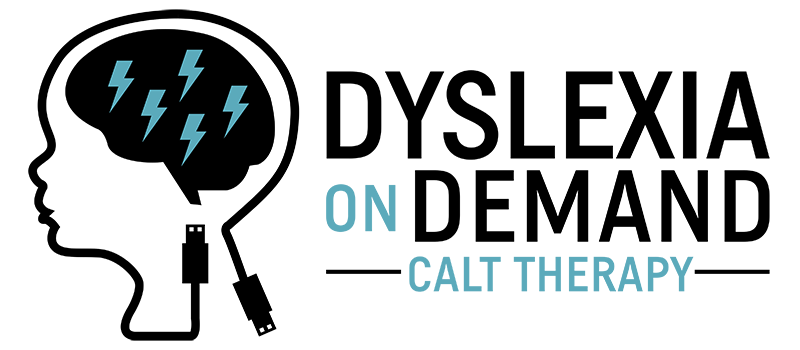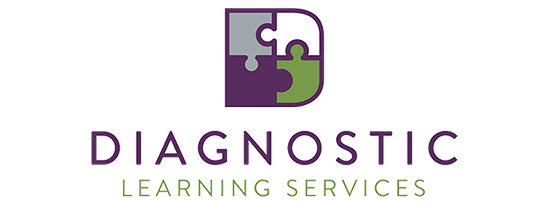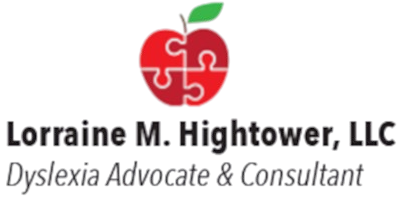Dyslexia On Demand
Dyslexia Resources for Parents
The following websites are a compilation of the most valuable resources for dyslexia-related education, advocacy, and laws.
- 01.National Center on Improving Literacy
The NCIL website is a partnership between literacy and research experts. Not only does it have several parental supports and factual information on dyslexia, but under the Schools and Districts tab, the NCIL reviews and educates on evidence-based reading intervention programs for children and clearly explains dyslexia screening tools needed for early dyslexia intervention. Under Tools and Resouces, there is a “State of Dyslexia” mouse-over map of current legislation in each state. Learn more at improvingliteracy.org.
- 02.National Center on Intensive Intervention (NCII)
The NCII is another fabulous resource for educators, and subsequently, parents, when learning about Data-Based Instruction and Intervention. Under Tools and Charts, the NCII rates different progress monitoring, screening, and intervention tools used by schools. This is helpful for parents to understand the quality of what is being used in the schools. Learn more at intensiveintervention.org.
- 03.Wrightslaw
A “clearinghouse-style” website detailing parent and student rights under the Individuals with Disabilities Education Act (IDEA), Section 504, advocacy training, and recent court rulings favoring students’ rights. The site is frequented by educational advocates and attorneys. Learn more at wrightslaw.com.
- 04.Council of Parents Advocates and Attorneys
The Council of Parents Advocates and Attorneys is an amazing, often unknown, resource for parents to locate an educational advocate or attorney in their local area. Unfortunately, many parents need this level of support when advocating for their children in their local public schools. Dyslexia On Demand is a proud member and supporter of COPAA. Learn more at copaa.org.
- 05.Dyslegia
State laws and protections can vary significantly from state to state. This website maintains the most recent and pending dyslexia legislation by state and is extremely easy to use. Under Evidence-Based Info, there is a link to the What Works Clearinghouse which also reviews and presents research on evidence-based approaches for students. Learn more at dyslegia.com.
- 06.Academic Language Therapy Association (ALTA)
An international organization providing the gold standard in credentialing dyslexia professionals as Certified Academic Language Therapists or Practitioners. Certified members are committed to delivering evidence-based intervention or therapy to individuals who have dyslexia and related learning disabilities. ALTA credentials represent the highest standard of excellence in their field. Dyslexia On Demand is a proud member and supporter of COPAA. ALTA is a resource to find the highest-level dyslexia professionals located in your area. Learn more at altaread.org.
- 07.International Dyslexia Association (IDA)
When a student is diagnosed with dyslexia, this is often a first stop for most parents. IDA not only is a support and professional organization for those impacted with dyslexia, but it also provides parents and educators with a large dyslexia digital library resource for free access. IDA is also a platform to connect dyslexia professionals and parents in your local area. Learn more at dyslexiaida.org.
- 08.Early Literacy Matters
This website directly explains the pitfalls that schools experience with the adoption of comprehensive literacy overhauls. It also summarizes state legislative efforts to overcome literacy blockages. Learn more at earlyliteracymatters.org.
- 09.Take Flight Research Summary
Dyslexia On Demand utilizes the Take Flight curriculum, created by the Texas Scottish Rite Hospital for Children. Take Flight is an evidence-based, therapeutic program specifically targeted at creating neural pathways to retrain the dyslexic brain. Learn more at scottishriteforchildren.org.
Our Posts
Dyslexia Resources
Executive Summary Dyslexia and ADHD share several overlapping symptoms, making it easy for parents to confuse the two, especially when reading and classroom performance become challenging. This post explains the key differences between the conditions, highlights how they can co-occur, and outlines the next steps for seeking a comprehensive evaluation…
Executive Summary The IDA periodically updates the definition to reflect current scientific and clinical research. The new definition offers shared language and a clearer framework for educators, clinicians, researchers, parents and students. If you didn’t already know: in 2025, the dyslexia community has a new, more detailed definition of…
Executive Summary Early and accurate dyslexia testing is crucial for unlocking the right interventions and classroom accommodations for struggling readers. This guide walks parents through the process of testing, diagnosis, and next steps, empowering them to advocate effectively for their child’s success. When a student has difficulty reading, there’s…
Executive Summary This article offers an accessible overview of dyslexia, explaining that it is a neurobiological learning disability—not a reflection of intelligence—that affects reading, spelling, writing, and self-concept. It outlines early signs, broader symptoms, and the importance of structured, multisensory interventions, such as the Orton-Gillingham Approach, for effective support. …
Executive Summary: A dyslexia diagnosis can feel overwhelming, but it’s also the first step toward understanding your child’s unique learning needs. With the right information and evidence-based support, children with dyslexia can thrive academically and confidently. When a child is diagnosed with dyslexia, it can be a relief. A dyslexia…
Executive Summary: Navigating dyslexia can feel overwhelming, especially after a diagnosis. Families often wonder what steps to take next, how to support their child, and what resources are truly effective. This guide breaks down the process into clear, manageable actions—from understanding the diagnosis to finding the right intervention—so you can…
Executive Summary: Every child learns differently, and for about one in five students, a learning disability like dyslexia, dyscalculia, or dysgraphia can make academics more challenging. Understanding the “4 Ds” helps families identify the right supports so children can build confidence and thrive in school and beyond. When watching children…
Executive Summary: As a new school year begins, students with dyslexia may face unique challenges in reading, writing, organization, and confidence—but also bring incredible creativity and problem-solving strengths. With the right support, classroom accommodations, and dyslexia therapy, every student can start the year ready to thrive. It’s back to school…
Executive Summary: Virtual dyslexia therapy offers proven, research-based strategies that are as effective as in-person instruction—delivering flexible, personalized, and multisensory learning for every student. With Dyslexia on Demand, families gain access to expert CALTs, structured literacy programs, and consistent support designed to help children with dyslexia thrive. When you’re a…
Executive Summary: Don’t Call on Me, the Dyslexia Podcast brings together real stories, expert insights, and heartfelt conversations that help families, educators, and students better understand dyslexia. Hosted by Megan Pinchback of Dyslexia on Demand and Eryn Schnel Yolac of Advocate to Educate, the podcast fosters connection, advocacy, and hope…
Executive Summary: Early signs of dyslexia can appear long before formal schooling begins, often showing up in how a child learns letters, rhymes, and sounds. Recognizing these early indicators allows parents to seek help sooner—and with structured, expert-led therapy, children with dyslexia can thrive as confident, capable readers. Maria Montessori…
Executive Summary: There are many misconceptions about dyslexia, but understanding the facts is the first step toward finding the right support. By learning what dyslexia truly is—and what it isn’t—families can help students build confidence, access effective therapy, and thrive in school and beyond. If your family is facing a…
Executive Summary: A dyslexia diagnosis can open the door to understanding how your child learns and how to best support them. By recognizing the challenges dyslexic students face—and addressing them with structured, multisensory therapy—parents can help their children build both confidence and reading success. When your student has a dyslexia…
Executive Summary: Summer should be a time for fun and rest—but it’s also a key opportunity to prevent the “summer slide” in reading skills. Dyslexia on Demand’s virtual summer programs help students with dyslexia build confidence, strengthen literacy, and start the next school year ahead. By the end of the…
Executive Summary: Finding the right dyslexia program can transform how your child learns and builds confidence. Dyslexia on Demand’s Take Flight curriculum, taught by Certified Academic Language Therapists (CALTs), provides a proven, research-based approach that strengthens reading skills and supports lifelong success. Parents want the best for their kids. As…
Executive Summary: Reading aloud in front of peers, filling out a reading log each night of the week, and writing paragraphs for every subject in school might be just a few assignments that your dyslexic child is challenged by when he or she is a student. Getting through the day-to-day…
Executive Summary: Dyslexia isn’t something to “overcome” but to understand and manage with the right support. Through evidence-based dyslexia therapy, students can build new neural pathways that strengthen reading, writing, and confidence—proving that the dyslexic brain can thrive with the right tools and guidance. When a child receives a dyslexia…
Executive Summary: Dyslexia is not a disability—it’s a neurobiological difference that affects how the brain processes language. With the right support and evidence-based dyslexia therapy, students can build new neural pathways, improve reading fluency, and harness their natural creativity and problem-solving strengths. Perhaps one of the most fascinating things about…
Executive Summary Students with dyslexia often experience daily challenges that can make school feel overwhelming—from taking longer to copy assignments to spending hours completing homework their peers can finish quickly. These struggles can affect academic performance and self-esteem, but dyslexia does not reflect a student’s intelligence. Dyslexic brains are simply…
Executive SummaryParents play a critical role in supporting children with dyslexia, and with the right tools, students can thrive both academically and emotionally. By partnering with trained professionals, understanding accommodations, and building a literacy-friendly home, families can help dyslexic students grow in confidence and skill. There are some really…
Executive Summary Dyslexia is a lifelong neurobiological difference, and understanding what daily life feels like for a dyslexic child can help parents provide meaningful support. With the right interventions, tools, and empathy, students can build confidence and develop strong reading and learning skills. Did you know that students cannot…
Executive Summary Creating a supportive home reading routine can make a significant difference for students with dyslexia by boosting confidence, connection, and language development. Pairing daily shared reading at home with structured dyslexia therapy provides students with both emotional support and targeted skill-building. Having a dyslexic child opens up…
Executive Summary Starting a new school year with a dyslexic student often means navigating accommodations, support plans, and legal protections in the classroom. With the right understanding of school policies and access to specialized dyslexia therapy, students can build strong literacy skills and confidence both in and out of school…
Executive Summary Early signs of dyslexia can appear in preschool and become more noticeable as children begin formal reading instruction. Recognizing these signs early and seeking structured, research-based support can help students build stronger reading skills and confidence. Consider all of the things that you read on a daily…
Executive Summary Choosing the right dyslexia reading program is essential for helping students build foundational language and reading skills that last. Evidence-based, structured literacy programs—especially those delivered by Certified Academic Language Therapists—provide the most effective and lasting support for children with dyslexia. Starting treatment for dyslexia can be both…
Executive Summary Understanding how the dyslexic brain processes language can help parents choose tools and support systems that truly make a difference. When combined with evidence-based dyslexia therapy, carefully selected learning apps and multisensory strategies can help students build new neural pathways and grow into confident readers and writers. …
If you’re the parent of a student who has been diagnosed with dyslexia, it’s likely that your first intuition is to seek solutions to help. Looking for help is a great first step. However, when you Google: “dyslexia help,” more than 125,000 different search results appear. This can make it…
Executive Summary A dyslexia diagnosis can feel overwhelming at first, but it also opens the door to targeted support that helps students build confidence and develop strong reading skills. With the right resources, school partnership, and evidence-based dyslexia therapy, families can support their child in meaningful, long-lasting ways. At…
Executive Summary Neurodivergent children, including those with dyslexia, often possess remarkable strengths such as creativity, empathy, problem-solving, and resilience. With early intervention, informed advocacy, and evidence-based dyslexia therapy, parents can help their children grow academically and develop confidence that extends far beyond the classroom. As soon as babies are…
Executive Summary A dyslexia diagnosis can feel overwhelming, but learning common terminology helps parents become informed partners in their child’s support. Understanding the difference between tutoring and therapy, key language concepts, and structured literacy approaches empowers families to make confident, effective choices. When your child receives a dyslexia diagnosis,…
Maybe a classroom teacher has mentioned some concerns to you about your child’s reading skills. Or perhaps you’ve suspected that your student struggles with comprehension. Maybe you notice that your child avoids reading aloud. If you’re concerned about your child possibly having a specific learning disability, the best thing you…
A beautiful thing that stemmed from the world of educational psychology in the 1980s is Howard Gardner’s theory of multiple intelligences. This theory puts forward the belief that people all have various, distinct types of intelligences and not just one general measure of intelligence. Multiple intelligences incorporate different areas such…
It’s almost that time again. Perhaps you’re scouring sales for backpacks, shoes, and lunchboxes. Or maybe you’re getting in your last licks of summer with a getaway. By August and September, most children all around the United States will be heading back to school. It can be an exciting time,…
One of the most edifying things to experience as a parent is to have another person know, understand, and truly see your child. Sometimes that understanding person is a teacher, a tutor, a coach, a friend, or even a therapist. When children have a specific learning disability—like dyslexia—it is likely…
When you become a parent, no one hands you an instruction manual to refer to for all of the important parts of parenthood. Parents are left to their own devices to navigate major things like health care and education, sometimes with no experience under their belt. Luckily, there are plenty…
One very cool concept to understand in the field of brain science is the fact that our brains are ever-changing. Learning new things can help our brains to create, develop, and connect neural pathways. The good news about this is that our brains provide us with limitless learning potential. For…
Neurodivergence has become a more common term in recent years. It’s often used to describe people with autism, ADHD, OCD, mood disorders, anxiety disorders, personality disorders, or learning disabilities like dyslexia. Truly, being neurodivergent means that your brain functions, processes, behaves, and learns differently than brains that are considered “typical.”…
So often in school settings, a child’s intelligence tends to get boiled down to a set of test scores and letter grades. The results of standardized tests can be discouraging to some students. However, math and visual/spatial ability—while important—do not measure a child’s intelligence holistically. It is so crucial that…
Parenting life can get so busy. There’s sports, school, meals, rides, and so much to schedule and manage. However, from babyhood through young adulthood, it is essential for parents to make room in their lives to support their children on their learning journey. When students reach school age, it is…
Have you embarked on a journey to seek help for dyslexia? There is so much to learn. Some estimates suggest that 20% of the U.S. population is affected by dyslexia. Fortunately for students who struggle with reading, there’s ongoing research around the importance of identifying the signs of dyslexia early…
Primary care providers can be such an important part of patients’ and families’ lives. Whether parents or patients share concerns or ask questions about topics like mental health, relationships, or even experiences at school, practitioners can help to discuss different solutions. The same is true when it comes to patients…
In the world of education, different schools of thought on how to approach reading instruction have always existed. There were the Dick and Jane books that so many young readers learned to read with, through sight words and repetition. Later, other ways to read emerged like the whole language approach,…
One of the greatest things about working as a medical provider is meeting all kinds of patients with all different kinds of abilities. Working with children who are diagnosed with a disability can be enlightening and enriching for physicians. It opens up a whole world of understanding and connection. For…
As parents, we are in charge of managing and providing so much for our children. There’s the basics like food, shelter, and clothing. We make all kinds of decisions each day in hopes that we are giving our children exactly what they need. Of course, there are also some big…
If you’re someone who works to help young people improve and maintain good health, then you know that health is not just physical. Mental health has become a major concern in the lives of young patients in recent years. More than that, so many aspects of young patients’ lives are…
When you are seeking help for a student with dyslexia, there are a few routes you can take, including tutoring or therapy. Dyslexia tutoring is an approach that tends to focus on academic goals like improving reading comprehension; tutoring usually complements the skills that a student is learning in school…
In a world where we rely so much on technology, it has become increasingly important to evaluate and capitalize on some of the wonderful things it can do to help us. One strong example of a great use of technology is online dyslexia programs. These online programs can offer many…
When it comes to finding the best reading programs to help with your child’s dyslexia, checking out all of the options can be overwhelming. Seeking the most successful methods for your student is important, but there is just so much to navigate in the world of dyslexia reading programs. From…
Pediatricians, neuropsychologists, and doctors play a crucial role in caring for children and families. They help to promote preventive care through vaccinations, well visits, advice, diagnoses, treatment, advocacy, and ongoing care. One of the most crucial things that medical providers can do is to help address concerns that parents may…
For parents of children with dyslexia, finding the right educational support can feel like navigating without a map; you have a desired outcome or destination for your child—you just don’t know the path to take to get there. If you’re a parent who feels a bit lost when it comes…
Providers are such an important part of a patient’s whole support system. When it comes to pediatric patients who have learning disabilities like dyslexia, doctors have the potential to help with so many different areas of this diagnosis; some facets providers can help with include early intervention, collaboration with teachers,…
Approximately 20% of the U.S. population deals with having dyslexia, but this percentage doesn’t include the parents and family members whose lives are also affected by dyslexia. While parents of a student with dyslexia might experience things such as frustration and confusion, medical professionals of a child with dyslexia are…
Dyslexia on Demand is changing neural pathways to help change children’s futures. As a service that offers dyslexia therapy, we speak to parents of dyslexic children daily. We have discovered the most effective approach to helping children with dyslexia succeed in the classroom and beyond. With clients across the nation,…
When they’re little, you may read books with your children like “Where the Wild Things Are” or “The Book with No Pictures.” As they grow, they may dive into classics like “Charlotte’s Web” on their own. Later, young readers may choose their own reading adventures with chapter books such as…
The human brain is a fascinating thing. Neural pathways in the brain can get stronger and faster the more that we use them. The way we learn through repeated experiences helps our brains to create defined pathways that allow us to perform actions more efficiently. One of the skills that…
When you become a parent, you suddenly have thousands of decisions to make on behalf of another human. From what brand of diapers to choose to what kind of milk you supply, there are so many things to think about when raising children. Perhaps one of the most—if not the…
One of the greatest shifts in the world of education might be the way that we see learning differences like dyslexia. People with dyslexia learn and process information differently than typical learners. In recent years, there have been great developments when it comes to successful interventions for students who have…
Reading can unlock a whole new world for new readers. Building reading skills is such a foundational part of education. However, when your child faces obstacles to reading in the form of a learning disability like dyslexia, it can be frustrating for both the student and the parents. If your…
Sometimes the signs of dyslexia show up in early childhood—around preschool or kindergarten. Things like delayed speech and language development, difficulty learning letters, rhymes, and songs, or even trouble with fine motor skills like writing and drawing can surface around this young age. Later, when students are school-aged, signs of…
Did you know that 20% of the U.S. population is affected by dyslexia? So many children and adults deal with the effects of dyslexia in their daily life—at school, at work, and even reading for daily, leisurely activities. Families and educators are often affected by dyslexia in a second-hand manner…
Parents tend to have great intuition when it comes to their kids. Sometimes, when children are struggling, parents will pick up on the small details that point to a problem. For kids who struggle with different kinds of learning disabilities, problems might surface with issues like fatigue, moodiness, and anxiety…
Fairy tales, story books, and reading together can make for such sweet moments and memories during childhood. But as parents and educators know, children learn to read at different paces. Sometimes, the process of reading—and enjoying reading—can be affected by a child having a specific learning disability (SLD) like dyslexia…
The arrival of fall means that school is in session across the nation. Students of all ages and grades are starting the school year in classrooms, meeting teachers, getting to know new classmates, making friends, and hopefully—getting going on their learning journey. For students with specific learning disabilities like dyslexia,…
The education of children is something that impacts everyone’s future. In the United States the educational system is aimed at providing children with foundations to become successful adults in our society. In many ways, education is preparing children for future employment and independent living. If you consider the power that…
As summer winds down and the school year kicks in, the focus of families tends to turn back to school, studies, and student success. For students with learning disabilities, in addition to gearing up with new backpacks, school supplies, and lunch boxes, some educational support can be a great addition…
If you know – or suspect – that your child has dyslexia, it’s important to realize that there is an array of options available to support your child. While many of those options are mandated to be available at school, online dyslexia programs can dramatically improve your neurodiverse child’s chances…
Summer. Just the word conjures visions of vacations, long lazy afternoons and days spent at play. But while we all enjoy the respite provided by the fleeting summer months, it’s not a secret that those weeks without school often lead to a lag in learning. Known as the summer slide…
Throughout history, many individuals have helped to shape our understanding and implementation of education. In the realm of early education, Maria Montessori developed a method based on children’s natural curiosity and eagerness to learn. Montessori schools—focused on early childhood education—center on hands-on experiences and a deep respect for the child…
When it comes to ways to help a student with dyslexia, there are so many approaches to try. Students with dyslexia may need different accommodations in their school classroom such as a quiet place to work, extra time on tests, or the use of technology to help them. Many families…
Making the leap from high school to college is a big step for any young adult. College presents a huge learning curve for many students—culturally, socially, and academically. For students with dyslexia, transitioning to life on a college campus can be challenging. Dyslexic students should not be discouraged as they…
Currently, there is a spotlight on mental health and its importance – and for good reason. The mental health of children and young adults is especially concerning. According to the CDC, poor mental health is a prevalent problem for adolescents. When it comes to working with students with dyslexia, seeking…
One of the most helpful things parents of students with dyslexia can do is seek the best help available for their kids. A dyslexia program can personalize the learning experience for students. Dyslexia therapists can do this by identifying students’ strengths and weaknesses and providing targeted interventions. Some of the…
One thing is certain about dyslexia: finding the right treatment for your student is so important. If you suspect your child has dyslexia, it is wise to seek an evaluation and options for treatment promptly. By seeking treatment early on, students with dyslexia can have a better chance at improving…
Up to 20% of children are affected with dyslexia. For students with dyslexia, finding the right treatment is essential. You may have heard of some of the commonly implemented instructional methods. Two distinctly different approaches to treatment for dyslexia include dyslexia tutoring and dyslexia therapy. While dyslexia can affect students…
When a student is dealing with dyslexia, it’s common for parents to have questions about treatment for dyslexic students. Parents often wonder if dyslexia affects only reading (no), or if students with dyslexia will be able to learn to read (yes!). One of the most common questions parents tend to…
There is great pleasure to be found in reading; Reading allows students to discover other worlds, identify with and analyze characters, gather interesting facts and information, and become an independent learner. Sometimes, the benefits and pleasures of reading can be hindered by learning differences like dyslexia. Literacy has become an…
Speaking, listening, reading, writing, spelling, and even thinking are daily tasks that so many of us do with ease. Whether you’re scrolling the internet, giving a presentation, or simply carrying on a conversation, these everyday things require so many functions of the brain to operate in just the right way…
There are so many milestones as babies grow up to be busy toddlers and active school children. From walking to talking, first steps and first words can become landmark occasions for families. By kindergarten, there are often reading milestones set in place. Academic success can be such a great experience…
Dyslexia is a common learning disability; statistics show it affects approximately one in every five people. Once parents are aware that their student has dyslexia, one of the best things to do is to seek support. Support can come in many forms. In the US, some private schools are dedicated…
Even before the days of Zoom meetings and working from home, online dyslexia programs were in existence, helping students to improve reading skills from the comfort of their home computers. Online dyslexia programs—powered by convenience, consistency, and intensity—can help students who struggle with dyslexia to improve. These programs can change…
Keeping it simple is key for kids who are struggling with their reading skills. While data and studies about dyslexia confirm that decodable readers and explicit phonics-based instruction are essential at school, at home it is often the most basic, straightforward reading strategies for struggling readers that emerge as the…
Fortunately, for students with dyslexia (and their parents) who are seeking help with their learning difference, there are many options to choose from. A suitable dyslexia program should be dedicated to addressing the issues that surround this specific learning disability. Giving students the opportunity to learn to be academically successful—regardless…
Reading is one of the most important life skills a student can possess. From math to history to English, reading well is an essential skill across all subjects. However, mastering reading skills can be quite challenging for students with dyslexia. Dyslexia occurs in all languages, and it is estimated that…
There are all kinds of individuals who can help a student with dyslexia. From caring parents at home to helpful teachers in the classroom to professional tutors, many different people are willing to help students who may be struggling with dyslexia. However, if your student is in need of more…
Once your student has a dyslexia diagnosis, seeking the right kind of help can be overwhelming. There are so many different tutors, teachers, therapists, styles, and services. It is important to know the differences between the kinds of treatments that are available. Read on to learn 7 important differences between…
Dyslexia is often associated with difficulty reading, but students with dyslexia often struggle in math too. Math can be complex. It’s a subject made up of symbols, word problems, and concepts of time, sequence, and order. Math also calls on conceptual, logical, and spatial reasoning and computational skills. Learn more…
Dyslexia is often defined in negative terms: a deficit, a disability, a difficult thing. While dyslexia can negatively impact skills in reading, spelling, and fluency, students with dyslexia can have many other strengths. Identifying dyslexia early and designing appropriate instruction is key, but know that there are not just limitations…
According to the Literacy Project, the number of books in a home correlates significantly with higher reading scores for children. But what if you have a child who is struggling to read? Without effective interventions and strategies, all those books might go untouched. Thankfully, in addition to some techniques you…
If you’re diving into the world of dyslexia therapy, you’re about to learn a lot. Some terms will be new to you, and they’ll be a gateway to understanding the process and getting your child the help they need. Multisensory structured language education: This is actually the formal name for…
Finding support for your neurodivergent child can be daunting when you consider the ramifications of that decision will have a dramatic impact on their future educational success. Here are 11 frequently asked questions about online dyslexia programs: What is the difference between online dyslexia therapy and dyslexia tutoring? Dyslexia tutoring…
As parents and guardians of children with dyslexia begin to contend with the various resources and protections available for their neurodivergent child, what can seem like an entire dictionary of terms and phrases begins to be heard. There are dozens of idioms and expressions in the world of dyslexia and…
Every school year tens of thousands of parents get the news that a school screening indicates that their child has dyslexia. For many parents, that determination doesn’t come as a surprise. Either way, those parents are most likely wondering about the best way to help a child with dyslexia. It’s…
Students with dyslexia contend with a number of challenges. Struggling to read can become the first step of an educational experience marred by disappointment and frustration. Thanks to federal law mandating that all children have full access to education, dyslexia accommodations are available to help mitigate the impact of the…
This is the second in our series of posts about The Dyslexia Handbook One of the most important resources for anyone associated with dyslexia, including parents, teachers and school administrators is a Dyslexia Handbook. While not all states have them, dyslexia handbooks are a crucial resource to educators, administrators and…
One of the most important resources for anyone associated with dyslexia, including parents, teachers and school administrators is a Dyslexia Handbook. While not all states have them, dyslexia handbooks are a crucial resource to educators, administrators and parents. Of the more than 25 state handbooks that are in use, one…
With the start of the new school year just weeks away, teachers and students alike are looking forward to the upcoming year with a mixture of anticipation and apprehension. For students with dyslexia the school year can either be a year of frustration or the time they realized their potential…
It’s hard to know what our children are thinking in the best of circumstances, but when they are struggling it’s particularly important to decipher their thoughts. Here are five things your dyslexic child may be thinking – and how to help. Why is this so hard? Learning to read can…
The challenges that neuro-divergent children face are not only with reading and writing. A dyslexic child’s self-esteem is also frequently impacted by the obstacles to traditional education caused by the learning difference. In this blog post, we’ll explore things you can do to improve your dyslexic child’s self-esteem. For more…
If your child has been diagnosed with dyslexia, the best chance you can give them for a successful academic career is to enroll them in an effective dyslexia reading program. The programs that have a lasting impact will require an investment of time before they are completed. Once your child…
Protections for neurodivergent children are a patchwork across the country, with some states doing an excellent job and others not so well. Thanks to the Individuals with Disabilities Education Act (IDEA) however, all children with dyslexia are guaranteed at least the opportunity for a public school education equal to that…
A healthy sense of self worth is one of the most important traits you can foster in your child. It will help define their relationships, determine their professional success and drive their mental health. What you do to improve your child’s self esteem will have life-long consequences. It can be…
As dyslexia screening becomes more prevalent and awareness becomes more widespread, children with dyslexia are usually identified early in their educational careers. That hasn’t always been the case however, and many adults with dyslexia have never received any assitance in overcoming it. While adults with dyslexia may have improvised coping…
When your child is first diagnosed with dyslexia, it can be an overwhelming feeling. Unless you or someone close to you has faced the learning difference, the prospect of finding the best dyslexia treatment can be daunting. The simple reality is: where you turn for dyslexia treatment will have long-term…
Dyslexia manifests itself most obviously as difficulty with reading and spelling, but there are other cognitive deficits associated with the learning difference that can have a dramatic impact on children’s educational experience. Processing speed, working memory and long-term retrieval all effect how children learn in the classroom and without help,…
Determining that your child has dyslexia can be a worrisome occurrence, but there are resources and regulations, including the Individuals with Disabilities Education Act, designed to help your child flourish. The Individuals with Disabilities Education Act and Section 504 of the Rehabilitation Act Both the Individuals with Disabilities Education Act…
If your child has been diagnosed with dyslexia, you are looking at a range of options for assisting your child. One option that some parents explore are special schools for dyslexia. While that may be an option for some families, the reality is that the best schools for dyslexia aren’t…
If your child is having difficulty reading, it can be hard to know how to help. Here are nine top reading strategies for struggling readers that parents can employ to assist their child. Read to your child: There’s a reason that this is advice you hear every time you turn…
If your child has been diagnosed with dyslexia, you know that this particular learning difference can impact the learning process in a variety of ways. Likewise, in order for your child to be successful, it’s important that effective dyslexia treatment encompasses a range of interventions. One of the most dramatic…
At first glance, Dyslexia and ADHD seem quite different. One makes people read poorly and the other makes it hard to concentrate. Digging a little deeper however reveals interesting similarities. To be clear, they’re not the same, and each has separate treatments. However, about half of children diagnosed with ADHD…
Testimonials
What Parents are Saying

“Damian was reading at a 3rd grade level in 8th grade. After completing the program with Ms. Pinchback, he finished high school and credits her with the fact that he graduated. He went on to college and was even awarded some scholarships. We couldn’t be more grateful.”

“…As a parent, it can be so scary when you get a dyslexia diagnosis. I feel like she took my hand and has been walking through this journey WITH us.”

“We struggled with therapy in the public school system. She wasn’t making progress because there were too many kids and not enough attention on my daughter. Switching to Dyslexia on Demand has been a godsend. She is flourishing and her growth rate has been unbelievable.”
Get In Touch
Is your child in need of dyslexia tutoring to alleviate learning struggles? Let us educate you on the difference between tutoring and therapy.
Telephone:
Email: info@dyslexiaondemand.com









